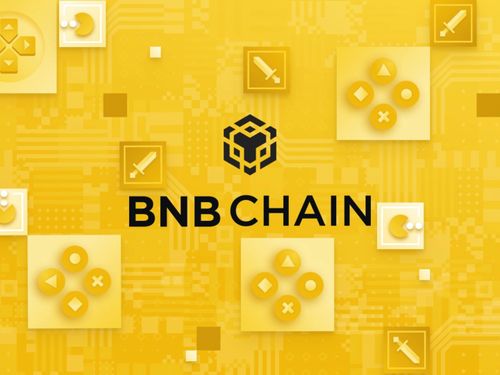BNB vs. Ethereum
BNB vs. Ethereum: Understanding the Key Differences and Use Cases
In the world of cryptocurrencies, there are few names as prominent and influential as Ethereum and Binance Coin (BNB). Both have played pivotal roles in shaping the landscape of decentralized finance (DeFi), non-fungible tokens (NFTs), and the broader blockchain ecosystem. While Ethereum is often hailed as the pioneer of smart contract platforms, BNB has emerged as a powerhouse within the Binance ecosystem. Understanding the differences and use cases of BNB and Ethereum is essential for any investor or enthusiast navigating the complex world of cryptocurrencies.
Ethereum: The Pioneer of Smart Contracts
Ethereum, conceived by Vitalik Buterin in 2013 and launched in 2015, introduced the concept of smart contracts to the blockchain world. These self-executing contracts allow for the automation of complex transactions without the need for intermediaries. Ethereum's native cryptocurrency, Ether (ETH), serves as fuel for executing smart contracts and powering decentralized applications (dApps) built on the Ethereum blockchain.
One of Ethereum's most significant contributions is its role in enabling the creation of decentralized finance (DeFi) protocols. DeFi platforms facilitate various financial services, including lending, borrowing, and trading, without the need for traditional intermediaries like banks. Ethereum's flexibility and robustness have made it the go-to platform for developers looking to build DeFi applications.
Moreover, Ethereum is the foundation for the burgeoning NFT market. Non-fungible tokens, which represent unique digital assets like digital art, collectibles, and virtual real estate, rely heavily on Ethereum's infrastructure for their creation, trading, and ownership.
Binance Coin (BNB): Powering the Binance Ecosystem
 Binance Coin (BNB) was launched in 2017 as the native cryptocurrency of the Binance exchange, one of the largest cryptocurrency exchanges globally. Initially launched as an ERC-20 token on the Ethereum blockchain, BNB later transitioned to Binance's native blockchain, Binance Smart Chain (BSC), in 2020.
Binance Coin (BNB) was launched in 2017 as the native cryptocurrency of the Binance exchange, one of the largest cryptocurrency exchanges globally. Initially launched as an ERC-20 token on the Ethereum blockchain, BNB later transitioned to Binance's native blockchain, Binance Smart Chain (BSC), in 2020.
BNB serves multiple purposes within the Binance ecosystem. It is used to pay for trading fees on the Binance exchange, participate in token sales on Binance Launchpad, and access various services within the Binance ecosystem, including decentralized exchange (DEX) trading on Binance DEX.
One of BNB's distinguishing features is its role in facilitating high-speed and low-cost transactions on the Binance Smart Chain. BSC employs a delegated proof-of-stake (DPoS) consensus mechanism, which enables faster transaction processing compared to Ethereum's proof-of-work (PoW) mechanism. This has made BSC particularly attractive for developers and users seeking efficient and cost-effective decentralized applications.
Key Differences and Use Cases
- Scalability and Transaction Speed: Binance Smart Chain offers higher transaction throughput and lower fees compared to Ethereum, making it suitable for applications requiring fast and inexpensive transactions, such as decentralized exchanges and gaming platforms.
- Decentralization vs. Centralization: Ethereum is known for its decentralization and security, upheld by its robust network of nodes. On the other hand, Binance Smart Chain sacrifices some decentralization for the sake of scalability and efficiency, as it operates with a smaller number of validator nodes.
- Ecosystem and Adoption: Ethereum boasts a more extensive ecosystem with a vast array of decentralized applications, DeFi protocols, and NFT marketplaces. However, Binance Smart Chain has rapidly gained traction, especially among projects and users looking for lower fees and faster transactions within the Binance ecosystem.
- Smart Contract Functionality: While both platforms support smart contracts, Ethereum's programming language, Solidity, is more established and widely adopted. Binance Smart Chain is compatible with Ethereum's virtual machine (EVM), allowing for interoperability between the two platforms.
In conclusion, Ethereum and Binance Coin cater to distinct niches within the cryptocurrency space. Ethereum remains the platform of choice for developers building complex decentralized applications and pioneering innovative blockchain solutions. Meanwhile, Binance Smart Chain offers a scalable and cost-effective alternative for projects seeking efficiency and accessibility within the Binance ecosystem. Understanding the differences and use cases of both platforms is crucial for navigating the evolving landscape of blockchain technology and decentralized finance.
People
- Bad News Barrett (born 1980), English professional wrestler
- Bad News Brown (musician) (1977–2011), Canadian musician of Haitian origin
Culture
- Bachs Notenbibliothek, K. Beißwenger's 1992 compendium listing music manuscripts and printed music owned by J. S. Bach
- Biographie Nationale de Belgique, the Belgian national biography
- Bomb and Bubble (BnB), a player mode in the Korean game Crazy Arcade
- British National Bibliography, the national bibliography for the United Kingdom and Ireland
Finance
- Banco Nacional de Bolivia, a Bolivian bank and financial services company
- Banque Nationale de Belgique, the National Bank of Belgium
- Barbados National Bank, part of Republic Bank
- Bulgarian National Bank
- BNB native cryptocurrency of the BNB Chain.
Other uses
- Branch and Bound, an algorithm design paradigm for discrete or combinatorial problems
- Bed and breakfast (sometimes spelled BnB)
- Bikes Not Bombs
- The IATA code of Boende Airport
- British North Borneo



![[ℕ𝕖𝕧𝕖𝕣] 𝕊𝕖𝕝𝕝 𝕐𝕠𝕦𝕣 𝔹𝕚𝕥𝕔𝕠𝕚𝕟 - And Now What.... Pray To The God Of Hopium?](https://cdn.bulbapp.io/frontend/images/79e7827b-c644-4853-b048-a9601a8a8da7/1)













![[LIVE] Engage2Earn: auspol follower rush](https://cdn.bulbapp.io/frontend/images/c1a761de-5ce9-4e9b-b5b3-dc009e60bfa8/1)










